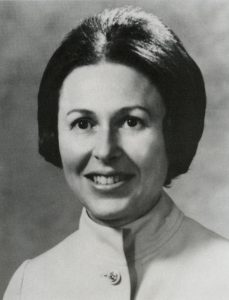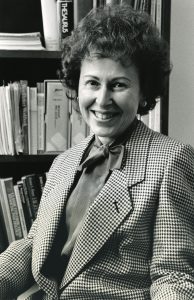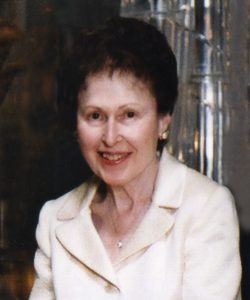A Memorial Tribute
Laurel Tanner, Professor Emeritus, Temple University, and Affiliate Professor at the University of Washington College of Education, passed away in Seattle on October 20, 2013.
Laurel served as an elementary school teacher in Columbus, Ohio and San Francisco, and later as supervisor in the public schools of Milwaukee. She earned her bachelor’s and Master of Art’s degrees at Michigan State University in 1949 and 1953 respectively, and was awarded the doctorate in Curriculum Studies at Teachers College Columbia University in 1967. While working on her doctorate Laurel Tanner was on the faculty of Hunter College of the City University of New York (1964-1966). In 1969 she joined the faculty of the College of Education at Temple University, Philadelphia, until she became Professor Emeritus in 1993. From 1989 to 1996, Dr. Tanner also served as Professor in the College of Education at the University of Houston. During the 1974-1975 academic year, Dr. Tanner was Visiting University Professorial Scholar at the Institute of Education, University of London (England). This was followed by visiting appointments at Stanford University (1984-1985), San Francisco State University (1987-1988), the University of Chicago (1988-1989), and the University of Washington (2009-2013).

Laurel Tanner was author of many books, including Classroom Discipline for Effective Teaching and Learning (1978), followed by the Spanish translation edition in 1980; and Dewey’s Laboratory School: Lessons for Today (1997). She was co-author of Classroom Teaching and Learning: A Mental Health Approach (1975) with Henry Clay Lindgren; and with Daniel Tanner four successive editions of Curriculum Development: Theory Into Practice (2007), Supervision in Education: Problems and Practices (1987), and History of the School Curriculum (1990) followed by the Chinese translation edition in 1999. Laurel Tanner anticipated the problems of mental health in the classroom and school environment of high-stakes testing and external pressures. As with Dewey, she held that discipline must be seen not as a process of external imposition, but as a power of responsible self-direction in the context of the cooperative, democratic classroom and school. Curriculum Development: Theory Into Practice has remained in print continuously through successive editions spanning over 40 years.
With the endorsement of Ralph W. Tyler, Director Emeritus of the Institute for Advanced Study in the Social Sciences and Lawrence A. Cremin, President of Teachers College, Columbia University, Laurel Tanner founded the Society for the Study of Curriculum History in 1978 and served as the Society’s first president, 1978-1979. The society meets annually before the opening of the Annual Meetings of the American Educational Research Association. Laurel was President of the John Dewey Society for the term 2000-2001.
In 1992-1993 Laurel Tanner was awarded a research grant from the Spencer Foundation. Among her many honors and awards were the Distinguished Service Award of the John Dewey Society (1981); Research Excellence Award, University of Houston (1982); Outstanding Writing Award, American Association of Colleges of Teacher Education (1998); and Lifetime Achievement Award, American Educational Research Association, Curriculum Studies (Division B). Laurel Tanner served as a member of the Council of Directors of the Association for Supervision and Curriculum Development (1982-1984): member, Committee on the Role and Status of Women in Educational Research and Development, American Educational Research Association (1994-1997); and Factotum and chair, membership committee, Professors of Curriculum (1983-1984, 1994-1995).
From 1969 through 1974, Laurel Tanner was a contributing editor for Educational Leadership, the journal of the Association for Supervision and Curriculum Development. She was editor and chair for the 87th Yearbook of the National Society for the Study of Education, Part I, Critical Issues in Curriculum, 1988 in which she contributed the introductory chapter, Critical Issues in Historical Perspective. Several chapters from the 1988 Yearbook were selected for republication in the Society’s 98th Yearbook, Part II in commemoration of the Society’s Centennial Year.

Over her career, Laurel Tanner was a constant contributor of articles to the leading professional journals, and served in leadership roles in many of our professional societies.
Laurel Tanner believed that over the history of the curriculum field, a rich heritage of experimentalist paradigms have emerged from a profound knowledge base upon which to build a science of education. But she felt that there was much lost ground as the result of repetitive cycles of shifting and conflicting forces and movements external to the educational situation. Laurel Tanner believed in the idea of progress, and that progress is the result of problem solving for growth and renewal by focusing on possibilities, not limitations.

Laurel’s life and legacy for education
might best be summed up in the closing words of her last book,
Dewey’s Laboratory School, Lessons for Today:
“Perhaps the best part of the story is just beginning.”
